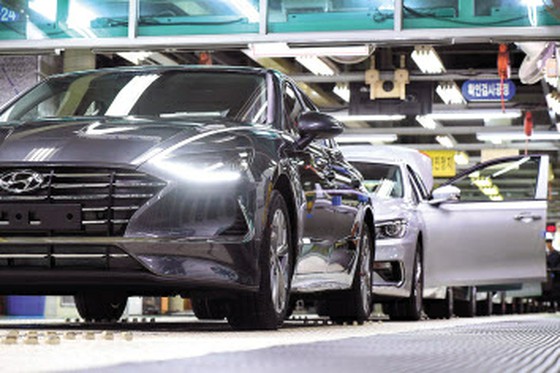 |
Since the company achieved record results last year, the position is that this year's collective bargaining will demand the highest levels of basic wages and performance-based wages.
According to South Korean media outlets such as Asia Today, the Hyundai Motor Workers' Union will hold an interim parliamentary meeting on May 24th and 25th, and propose a request to raise the base salary this year by 184,900 won (excluding the salary increase). This is 71.2% higher than last year's increase (108,000 won).
Also included in the request is an increase in bonuses from the current 750% of monthly wages to 800%, and an extension of the retirement age from 60 to 64.
It also includes a policy requiring a performance fee of 30% of net income (including stock).
Dividing 2.3951 trillion won, or 30% of Hyundai Motor's net profit last year (7.9836 trillion won), by the total number of employees (about 70,000 won), performance-based pay per employee is 34.22 million won.
The company's union plans to notify the company of this year's final bill for collective bargaining. Labor and management will begin full-scale negotiations in June.
In an editorial on May 27th, the Seoul Economic Daily commented on the labor union's demands, saying, "At a time when the structure of the global auto industry is expected to undergo rapid restructuring, excessive demands for wage increases by labor unions with vested interests are not likely to result in a favorable outcome for Hyundai Motor. There is a risk that it will lose its future competitiveness."
In an editorial on the 26th, Financial News said, "If Hyundai Motor, the eldest son of domestic automakers, raises wages excessively, other affiliates and the parts industry will suffer corresponding pressure. Wages will also rise, and this could lead to a vicious cycle of stimulating unstable prices."
2023/06/04 09:11 KST


